Our Interview With Author Gwen Florio
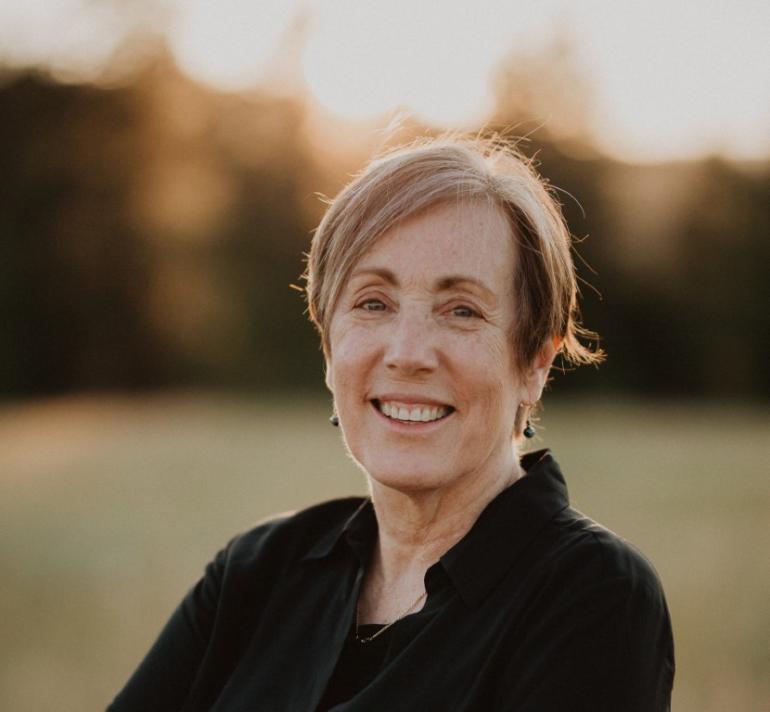
Foreign correspondent to acclaimed mystery writer isn’t usually a career trajectory seen outside Cold War spy movies, so Gwen Florio is a rare bird in that respect. Her day job as a journalist took her to places as far away as Afghanistan and Somalia, and as close as Wyoming and the Rocky Mountain Front. Most recently, she was editor of the Missoulian. After 40 years in the newsroom, Florio turned her attention to writing fiction full-time.
Montana, the first book in the Lola Wicks mystery series, was published in 2013 and won several awards, including the inaugural Pinckley Prize for Crime Fiction and a High Plains Book Award. Florio dedicated four more books to Lola, war correspondent turned reluctant small-town reporter in the fictitious community of Magpie, Montana. She is at work on two more series, whose respective protagonists (Nora Best and Julia Geary) are both women at turning points in their lives. She has written nine novels so far with two more forthcoming in the next year and has also contributed to several anthologies.
Distinctly Montana spoke with Florio about her favorite places in Montana, works-in-progress, what she’s reading, and eating camp stove ramen on book tours. It was a lively and funny conversation that underscored how much she has to offer readers who crave the fast-paced and gritty stories that she tells so well.
Distinctly Montana: You started publishing fiction after you had already established yourself as a journalist. Have you always written fiction, even before the Lola Wicks series was published? Either way, what motivated you to start writing fiction?
Gwen Florio: I’d written fiction for years – decades! – before my first book was published. I published a few short stories in very small literary magazines and wrote a novel that was rightfully rejected all over the place before Montana was published in 2013. Probably like most writers, I wanted to write fiction because I so love to read – my dream is to create that same sort of magic for a reader.
The thing that was most instrumental to improving my writing was membership in the Rittenhouse Writers’ Workshop in Philadelphia, run by James Rahn. Everybody in it was serious about their writing, and that really helped me level up. That said, it took years before my writing improved enough to be publishable, and it’s still very much a work in progress.
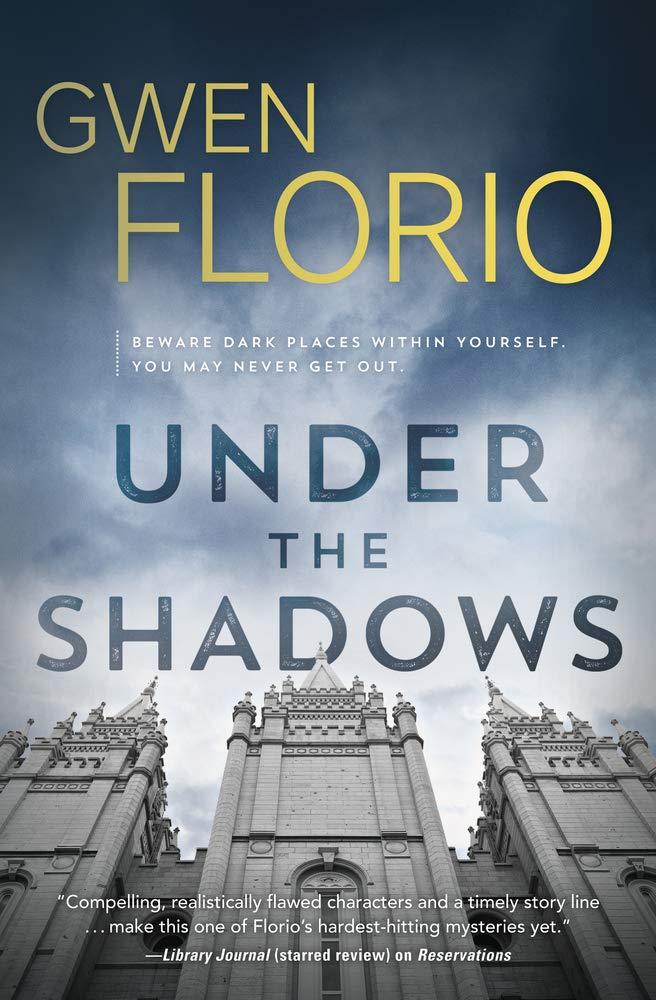
Under the Shadows by Gwen Florio
DM: Creative writing programs are great in that they can expose you to learning opportunities and afford you the time to write, but they also have the tendency to generate their own myths around the writing process. What does the term "writer's lifestyle" mean to you?
GF: I think there’s the dream of a writer’s lifestyle, where you spend all day at a desk, preferably in a lovely quiet office or studio with a beautiful view, overflowing bookshelves, coffee and snacks close at hand, and a well-behaved dog lying at your feet, with no interruptions to keep you from thinking great thoughts and putting them down on paper or screen.
This fantasy lifestyle also involves fully-funded book tours and parties with other writers, agents, editors, adoring readers, etc.
Oh, and selling enough books so you don’t need a day job. Even just writing all of that makes me want to laugh hysterically. Or maybe cry.
In reality, until very recently my own writer’s lifestyle involved getting up in time to be at a coffee shop when it opened at 6 a.m., where I wrote feverishly until it was time to go to work at 9 a.m., and then squeezing in more writing time on weekends when my family and friends were out having lives. Book tours? I once scheduled a three-state tour that involved nights in a tent rather than motels, meals of ramen cooked on my camp stove, and of course gas money came out of my own pocket. Now that I’m retired I have the luxury of writing time, something for which I’m thankful. Every. Single. Day.
DM: The mystery genre has always had very prolific women writers, but for some reason, it still comes as a surprise to many readers when the narrator is a "strong female protagonist" like Lola Wicks. Why do you think this is?
The “strong female protagonist” label makes me want to scream, and writers’ conferences finally – far, far too late – are getting away from panels on the subject, probably because so many strong female writers objected. Why the label? Good ol’ fashioned sexism is the only reason I can come up with. The women in crime novels do the same things male protagonists have always done – face down killers, solve crimes, prevent more crimes – except nobody thinks it’s remarkable when men do them. Good grief. Excuse me while I scream some more.
DM: As a follow-up question, how important is Lola's gender and race to the story?
Actually, I think the most important thing about Lola is her profession, rather than her gender. I was still working as a journalist when I wrote those books, and I wanted to give people an idea of what real journalism is like; how much digging through documents and shoe-leather grunt work is involved, along with some of the ethical issues journalists face. Given the genre, Lola faces far more exciting situations than most journalists. However, as a woman she deals with sexism and sometimes turns that to her advantage when people foolishly underestimate her.
As for race, although Lola is white I write characters of other races into my books because we don’t live in an all-white society. I always flinch when I read books that portray it that way, or when the minority characters have stereotypical roles – maid, drug dealer, sassy sidekick, etc. It’s a tightrope and I strive to find the right balance by not thinking of them as “the Native character” or “the Black character” but as the sheriff, the lawyer, etc., and trying my damnedest to make sure they’re fully fleshed out and not just caricatures. I know that if I get it wrong, I’ll rightfully hear about it.
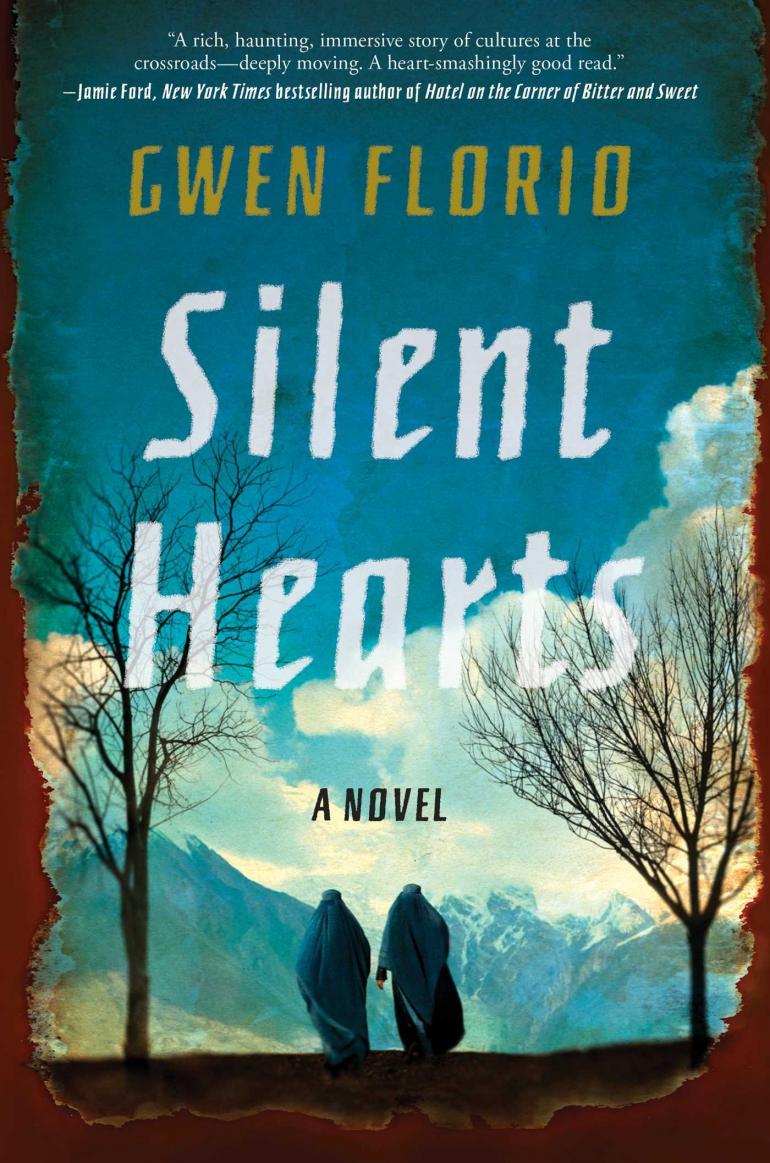
Silent Hearts by Gwen Florio
DM: Lola Wicks is not from Montana, but would you call her a Montana or Western detective?
I think over the course of the books, Lola develops a Western sensibility, and slowly adjusts to the realities of life in the rural West. I had fun with that in the fifth book by sending her to Salt Lake City after several years in rural Montana and having her realize she’d lost her city smarts – she’s late to a court hearing because she’s forgotten to allow for rush-hour traffic, that sort of thing. Just one more way in which I tormented Lola.
DM: Is the town of Magpie based on a real community?
Not really. I made it up for two reasons – there wasn’t a town where I needed there to be one, so I put one there. Also, if I had based it on a real town, I’d almost certainly have gotten something wrong, and I’d hear about it forever. That said, different people have said with great certainty that they “know” Magpie is really Dupuyer or Cut Bank. It’s neither, although there are definitely similarities.
DM: Why did you choose the Blackfeet Reservation as the setting for Montana as opposed to any other Montana reservation?
I’m more familiar with it than Montana’s other reservations and I also love the setting. The Rocky Mountain Front, with its breathtaking juxtaposition of mountains and plains, is my favorite part of Montana. More than anything, though, it has that crucial mix of borders – the reservation’s borders, the Canadian border and Glacier National Park – that make it easy for wrongdoers to slip across them and avoid law enforcement.
DM: Lola's character evolves over the course of the series. She moves to a new town, starts a new relationship, and has a child. How does becoming a mother and moving on from her bachelorette lifestyle affect Lola's character development?
Because I live to torment Lola (see above), it was really fun to give her a child and have her realize that for the first time in her life, someone is fully dependent on her. Yikes. It was also fun to see Lola, despite herself, soften some of those hard edges – until and unless something threatens her child. For me, the saddest thing about the series being discontinued is that I didn’t get to write a book in which Lola’s daughter is a teenager. Can you imagine the battles royale?
DM: How does writing Lola Wicks compare to writing Nora Best?
Nora’s at a completely different stage in her life than Lola. She’s older, suddenly single, and jobless, although for the moment has the luxury of being financially secure. She can do whatever she wants – the secret benefit of being a woman of a certain age. The trick for Nora is figuring out what she wants, and that quest leads her into some iffy situations. Just as writing Lola let me focus on a journalist’s work, writing Nora is a bit of wish fulfillment, in that I would love to be tooling around the country with an Airstream trailer.
Oddly enough – well, probably not so oddly – after the book went to press, my partner and I bought a camping trailer, though not an Airstream because, well, see above about the financial realities of a writer’s lifestyle. We’ve only made short trips so far, but they’ve really been fun – a big improvement over the tent.
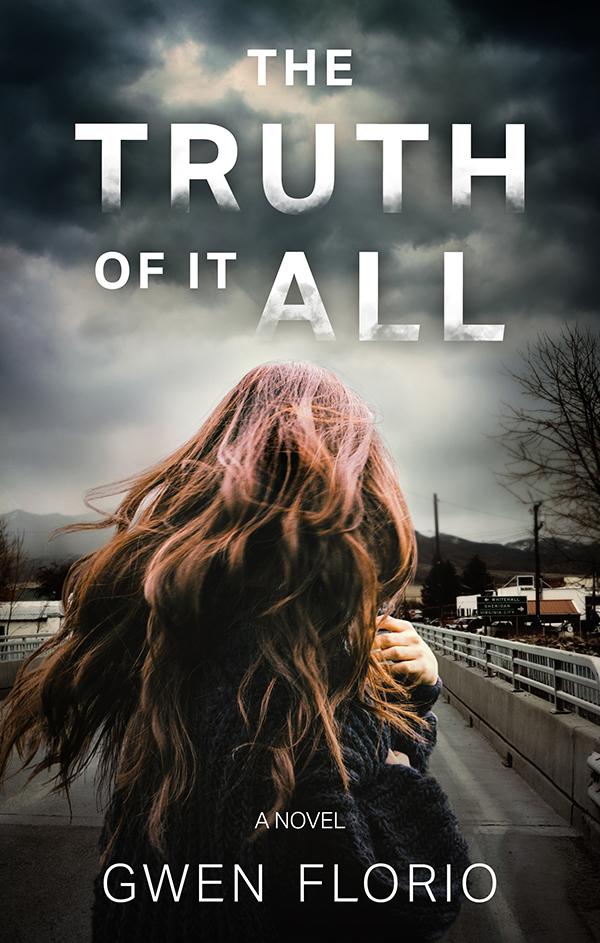
The Truth of It All by Gwen Florio
DM: What is your favorite Montana city or town? What about your favorite place in Montana, period?
That’s a tough one. I love Missoula – I've wanted to live here ever since my first trip here in the 1990s and the reality has, as they say, exceeded expectations. I love visiting the state’s other cities and particularly its small towns, especially their libraries and independent bookstores, who are incredibly supportive of local writers. You could drop me just about anywhere in Montana and I’d be happy, but as I mentioned before, the place I love best is the Rocky Mountain Front. I was privileged to write about the pull of the Front for a wonderful anthology, “A Million Acres: Montana Writers Reflect on Land and Open Space.”
DM: You write both genre and literary fiction. Your 2018 novel Silent Hearts has elements of espionage and political intrigue, which could help it pass as a thriller. What for you makes the difference between genre and literary fiction? Is there much of a difference anymore, and if so, does it really matter?
Damned if I know. I understand the need to classify books, but the lines seem awfully blurry to me. Most of the crime fiction I read is pretty literary. A lot of the literary fiction I read centers on crime. Silent Hearts was classified as literary, but maybe could also have been a thriller – except that if you look in stores that separate their mystery and thriller sections, you’ll notice that most of the books designated as thrillers are written by men. Ahem. For sure, I don’t think about genre when I write my books. I just try to write each one to the best of my ability.
DM: Who are you reading right now? Any recommendations for our readers?
I’m in the midst of Deirdre McNamer’s Aviary, and loving it, in preparation for a Montana Book Festival panel, and will be reading Caroline Patterson’s The Stone Sister next for the same reason. I’ve been looking forward to that one ever since I first heard about it. Razorblade Tears, the follow-up to Shawn A. Cosby’s breakout novel, Blacktop Wasteland, is screaming at me to pick it up, but I know that once I do, nothing else will get done.
I recently stumbled across Lily King’s Writers and Lovers and loved the sly insights about writing. I inhaled Laura Lippman’s Dream Girl and Megan Abbott’s The Turnout, and just finished listening to the audio version of James Lee Burke’s Another Kind of Eden, because Burke.
And I’m going to show off by saying I’m reading Erri de Luca’s Montedidio in Italian, which means I’m translating it sentence by insanely beautiful sentence. Luckily, it’s a very short book. I know I’m leaving out books I’ve recently read by writers whose work I love, but that’s a start.
DM: Silent Hearts is a book about two women navigating the political and cultural terrain of Afghanistan, trying to maintain their agency and independence against all obstacles. In the wake of the Taliban takeover of Kabul, what do you think the future holds for Afghan women and girls? (Editor’s note: This interview took place in August 2021.)
GF: I think their future is very grim indeed. I arrived in Kabul in 2001 just a couple of days after the Taliban fled, and I’ll never forget the sense of jubilation pervading the city. I interviewed so many young women and girls excited about returning to university or schools; others about returning to the workforce. They were bitter about the time lost, but so eager to get on with their lives. And now … it’s heartbreaking. I wish the world cared about them enough to push for a solution that protected their rights.
DM: Can you talk a bit about other writing projects you're working on now?
The Truth of It All, which starts a series featuring a young public defender named Julia Geary, came out in August and the sequel is due to the publisher in December. A weird combination of things, including deadlines delayed due to COVID, means that the third book to the Nora Best series is also due in December. Gulp. I’ve finished the first draft to the Julia Geary sequel, titled The Least Among Us, and am nearly finished with a first draft of the Nora Best Book, tentatively titled Best Practices. It’s very nearly time to start polishing the heck out of those, which means that fall is going to be a bit of a blur for me. I’m grateful every day for this “problem.”
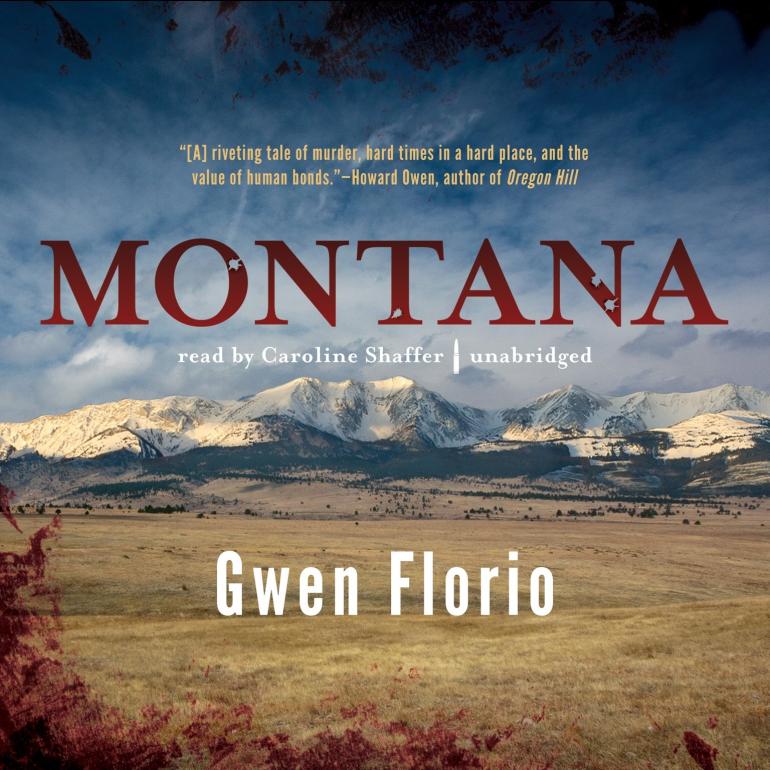
Montana by Gwen Florio
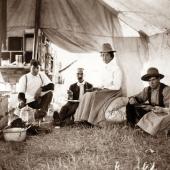
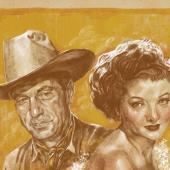
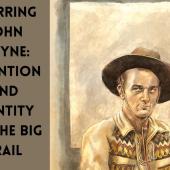
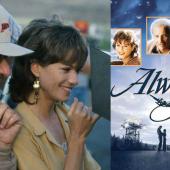
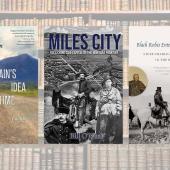

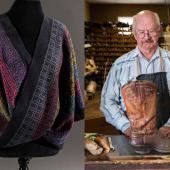
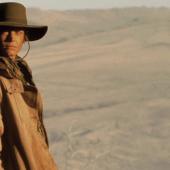



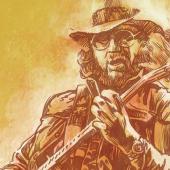
- Reply
Permalink